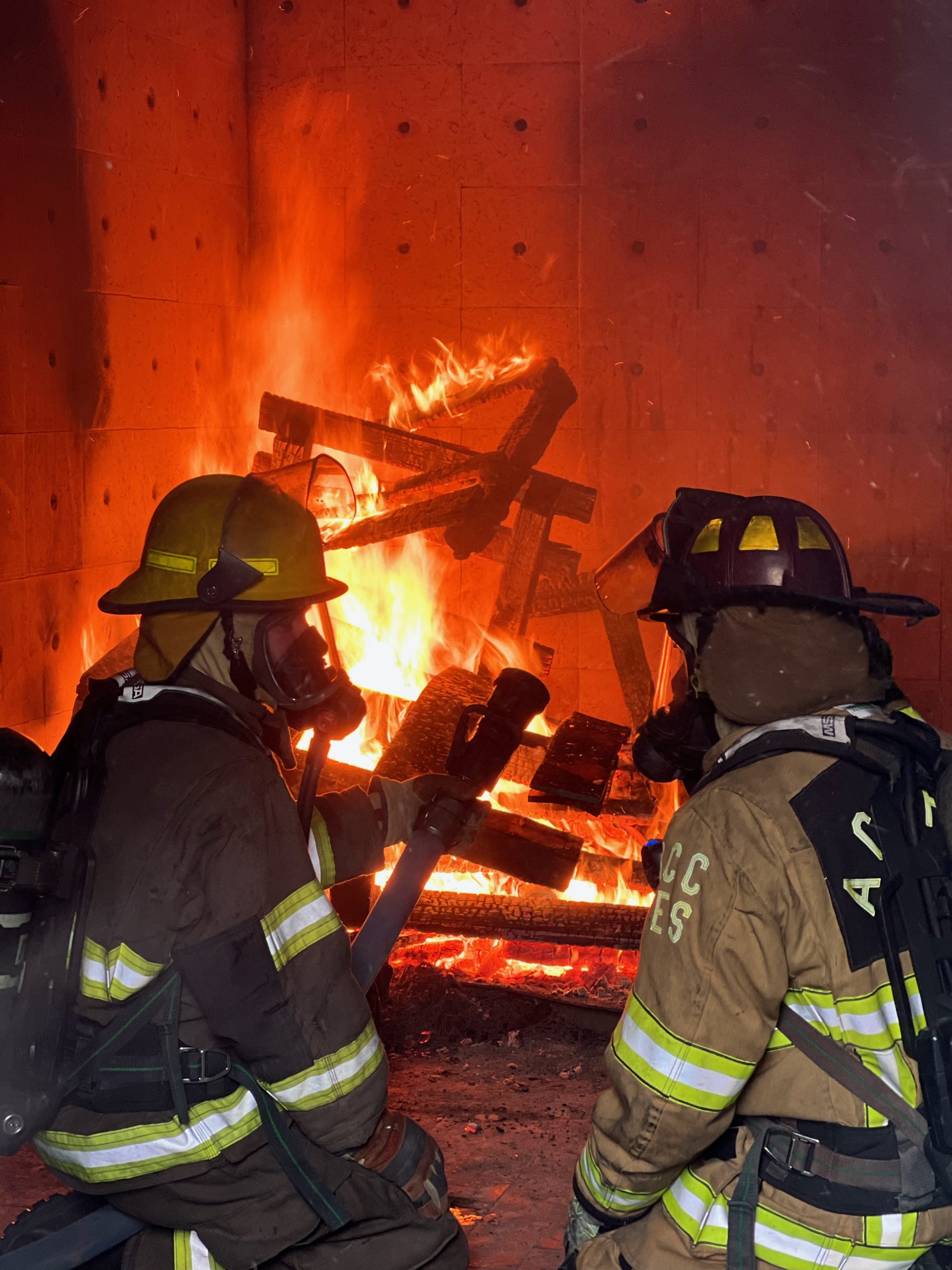The advanced emergency medical technician (AEMT) is a health professional whose primary focus is to respond to, assess, and triage non-urgent, urgent, and emergent requests for medical care; apply basic and focused advanced knowledge and skills necessary to provide patient care and/or medical transportation; and facilitate access to a higher level of care when the needs of the patient exceed the capability level of the AEMT. The additional preparation beyond EMT prepares an AEMT to improve patient care in common emergency conditions for which reasonably safe, targeted, and evidence-based interventions exist. Interventions within the AEMT scope of practice may carry more risk if not performed properly than interventions authorized for the EMR/ EMT levels. With proper supervision, AEMTs may serve as a patient care team member in a hospital or health care setting to the full extent of their education, certification, licensure, and credentialing. In a community setting, an AEMT might visit patients at home and make observations that are reported to a higher-level authority to help manage a patient’s care.
Course Objectives:
By the end of this program, students will be able to successfully demonstrate the appropriate AEMT knowledge and practical skill set at an acceptable level, as determined by national, state, and local regulations. Upon completion of this program, students should be able to:
- Practice professional standards by demonstrating a strong work ethic, positive attitude, respect for patients, ability to work cooperatively as a health care team member, and willingness to maintain and enhance technical skills.
- Communicate clearly and professionally using verbal and nonverbal communication techniques.
- Apply safety and infection control practices to maintain personal and professional well-being and to ensure patient safety.
- Assessment and management of patients of all ages with a variety of complaints, medical conditions, and traumatic injuries.
- Manage emergency patient care and treatment appropriately within the scope of practice for an AEMT.
- Apply legal knowledge and medical ethics to all patient care situations by documenting accurate and complete patient records and reports and maintaining patient confidentiality.
- Demonstrate competency in all minimum required psychomotor skills in accordance with National Education Standards.
- Use critical thinking skills to confidently and effectively manage emergency situations.
- Apply principles of emergency medical services operations, including considerations in ambulance and air medical transportation, multiple casualty incidents, and responding to situations involving weapons of mass destruction.
Course Costs/Tuition
The cost of this course is $2,000.00, which is due by the first night of class. Checks should be made out to “OGLETHORPE COUNTY EMS.” All payments are non-refundable. This cost will cover:
- Tuition
- Textbooks with PSGLearning Advantage Access
- Two (2) Shirts for Clinicals (short- and long-sleeve)
- Background Check
- CPR Certification
- Clinical/Lab Fees
During and after the course, the cost of uniforms, certification/exam fees, insurance, immunizations/other health requirements, etc., may be required and will be the responsibility of the student to pay, unless otherwise communicated.
Course Participation
The course utilizes lectures, open discussions, and skills practice to achieve the learning objectives. Every student is expected to:
- Come to class prepared to actively participate in discussions
- Read the text prior to the next class session
- Complete all homework assignments
- Respect the beliefs, opinions, and values of other students
- Have an open mind about the issues being discussed
Textbook(s)
- Advanced Emergency Care and Transportation of the Sick and Injured, Fourth Edition
By: American Academy of Orthopaedic Surgeons (AAOS)
Publisher: Jones & Bartlett Learning
ISBN: 978-1284228137
Course Schedule
- Tuesdays and Thursdays, 6:00 PM – 10:00 PM
- Select Saturdays, 8:00 AM – 12:00 PM (unless otherwise specified)
Course Location
- Oglethorpe County High School, Room 419
749 Athens Rd, Lexington, GA 30648
Course Completion Requirements
In order to be eligible to test for the National Registry of Emergency Medical Technicians (NREMT) Advanced Examination, students must complete the following:
- Proof of pre-requisites and co-requisites
- Successful completion of final written exam with 70% or above
- Successful completion of final practical skills examinations
- Completion of clinical requirements including ALS field internship
- No more than three (3) excused absences, per the instructor.
Field Clinical Requirements
AEMT students are required to perform field clinical requirements, in accordance with the National Education Standards, the Georgia Department of Public Health, and the State Office of EMS and Trauma. Students will not be allowed to receive compensation during the rotations.
Each student will be required to complete the following clinical rotations (minimum):
- Clinical/Field Hours
- 48 hours – Field: Ambulance
- 24 hours – Capstone Field Internship
- Successfully managed the scene, performs patient assessments, and directs medical care and transport as the team leader with minimal or no assistance.
- Patient Assessment By Age:
- Pediatric (0-18 years) – 5 patients
- Adult (19-64 years) – 10 patients
- Geriatric (65+ years) – 5 patients
- Patient Assessment by Pathology
- Cardiac Patho/Complaint – 4 patients
- Medical Neuro Patho/Complaint – 4 patients
- Other Medical Complaint – 2 patients
- Psychiatric/Behavioral – 2 patients
- Respiratory Patho/Complaint – 4 patients
- Trauma – 4 patients
- Skills Completed
- Medication Administration – 1
- Does not include crystalloid solutions or oxygen and must be within the AEMT Scope of Practice.
- Internship Team Leads – 5
- Medication Administration – 1
Co-Requisites
By the end of this course, the student will have completed the following supplemental requirements.
- ICS 100: Introduction to Incident Command System
- ICS 700: NIMS, An Introduction
- National Traffic Incident Management (TIM) Training
- Congenital Adrenal Hyperplasia Course (TRAIN.org)
- An Explanation of ETCO2 Monitoring and Clinical Application (TRAIN.org)
Attendance Policy
- Attendance is required at 100% of classes unless a student has arranged for an absence with the instructors prior to class and has presented a make-up plan, with the exception of emergencies.
- We understand that each student has their own commitments and schedules. The instructors for the course are willing to work with each participant to ensure their successful completion of the course, however no more than three (3) excused absences will not be tolerated.
- Missing 10% of class for whatever reason will result in voluntary withdrawal from the course.
- All information, skills, and training provided in this course are of the utmost importance to patient care and provider safety. We appreciate your understanding of this matter.
Make-Up Policy
Any and all work may be turned in prior to the due date. If a student provided notice at least 2 classes prior to a planned absence (in writing), any work that would have been missed will be administered during the class prior to the absence.
- Quizzes and Homework: must be turned in on or before the due date. No makeup work will be assigned. The lowest quiz grade will be dropped at the end of the course.
- Exams: by special arrangement with the Instructor Coordinator. Exams must be made up within two classes of the original exam date.
Lesson Plan
| WEEK | CLASS | DATE | DESCRIPTION |
| 1 | 1 | 1/30/25 | Course Introduction / Policies / Procedures |
| AHA Basic Life Support for Providers | |||
| 2 | 2 | 2/4/25 | Chapter 5: Medical Terminology |
| Chapter 6: Lifting and Moving Patients | |||
| 3 | 2/6/25 | Chapter 7: The Human Body | |
| 3 | 4 | 2/11/25 | Chapter 8: Pathophysiology |
| Chapter 9: Life Span Development | |||
| 5 | 2/13/25 | Chapter 10: Patient Assessment | |
| Chapter 11: Airway Management | |||
| 4 | 6 | 2/18/25 | Chapter 12: Principles of Pharmacology |
| Chapter 13: Vascular Access and Medication Administration | |||
| 7 | 2/20/25 | Chapter 3: Medical, Legal, and Ethical Issues | |
| Chapter 4: Communications and Documentation | |||
| 5 | 8 | 2/25/25 | Chapter 14: Shock |
| Chapter 15: BLS Resuscitation | |||
| 9 | 2/27/25 | Chapter 16: Medical Overview | |
| Chapter 17: Respiratory Emergencies | |||
| 6 | 10 | 3/4/25 | Chapter 18: Cardiovascular Emergencies |
| Chapter 19: Neurologic Emergencies | |||
| 11 | 3/6/25 | Chapter 20: Gastrointestinal and Urologic Emergencies | |
| Chapter 21: Endocrine and Hematologic Emergencies | |||
| 7 | 12 | 3/11/25 | Chapter 22: Immunologic Emergencies |
| Chapter 23: Toxicology | |||
| 13 | 3/13/25 | Chapter 24: Psychiatric Emergencies | |
| Chapter 25: Gynecologic Emergencies | |||
| 8 | 14 | 3/18/25 | Chapter 26: Trauma Overview |
| Chapter 27: Bleeding | |||
| Chapter 28: Soft-Tissue Injuries | |||
| 15 | 3/20/25 | Chapter 29: Face and Neck Injuries | |
| Chapter 30: Head and Spine Injuries | |||
| 9 | 16 | 3/25/25 | Chapter 31: Chest Injuries |
| Chapter 32: Abdominal and Genitourinary Injuries | |||
| 17 | 3/27/25 | Chapter 33: Orthopaedic Injuries | |
| 18 | SATURDAY 3/29/2025 | Chapter 40: Vehicle Extrication, Special Rescue, and Hazardous Materials | |
| 10 | 19 | 4/1/25 | Chapter 34: Environmental Emergencies |
| SKILLS Practice | |||
| 20 | 4/3/25 | Chapter 35: Obstetrics and Neonatal Care | |
| 11 | 21 | 4/8/25 | Chapter 36: Pediatric Emergencies |
| 22 | 4/10/25 | Chapter 37: Geriatric Emergencies | |
| 23 | SATURDAY 4/12/2025 | SKILLS Practice | |
| 12 | 24 | 4/15/25 | Chapter 38: Patients with Special Challenges |
| Chapter 39: Transport Operations | |||
| 25 | 4/17/25 | Chapter 41: Incident Management | |
| Chapter 42: Terrorism Response and Disaster Management | |||
| 13 | 26 | 4/22/25 | Chapter 1: EMS Systems |
| Chapter 2: Workforce Safety and Wellness | |||
| 27 | 4/24/25 | FINAL EXAM |
*Dates may change at the discretion of the Instructor.
Outcome Objectives
After completing this course, students will be able to describe and perform the patient care responsibilities of an Advanced Emergency Medical Technician (AEMT), demonstrate and perform AEMT skills, and apply the patient care and other duties/responsibilities of an AEMT.
Certification
Upon successful completion of the course and passing the NREMT AEMT exam, participants will be certified as Advanced Emergency Medical Technicians and can practice at an advanced level under the supervision of a licensed healthcare provider.
Academic Dishonesty Policy
Academic misconduct includes cheating, plagiarism, falsification of records, unauthorized possession of examinations, intimidation, and any and all other actions that may improperly affect the evaluation of a student’s academic performance or achievement; assisting others in any such act; or attempts to engage in such acts. Any incident of academic misconduct will result in the student being dropped from the course and, if applicable, the student’s sponsoring agency being notified of the incident.
Communication Devices
Cell phones, as well as other electronics, used in the classroom for non-instructional purposes, with the exception of receiving emergency notifications, are strictly prohibited.
Dress Code
Students must exhibit good personal hygiene and wear clothing that is appropriate for the material being presented or covered.
Proof of Immunizations
- Must show proof of a negative TB skin test (PPD) prior to being cleared for clinicals.
FERPA
Under the provisions of the Family Educational Rights and Privacy Act (FERPA), the progress of a student in this course can only be discussed with the student unless the student agrees in writing to allow someone else to be apprised of their progress.


